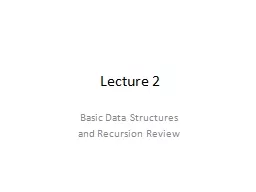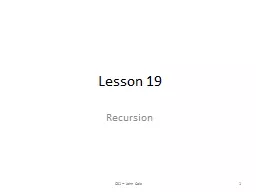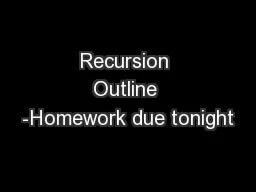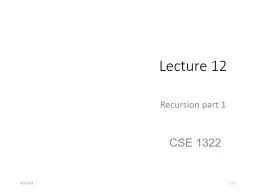PPT-Recursion How do we achieve the
Author : myesha-ticknor | Published Date : 2019-12-13
Recursion How do we achieve the complexity promised Need a new tool recursive algorithms An algorithm which calls itself Example recursive computation the Fibonacci
Presentation Embed Code
Download Presentation
Download Presentation The PPT/PDF document "Recursion How do we achieve the" is the property of its rightful owner. Permission is granted to download and print the materials on this website for personal, non-commercial use only, and to display it on your personal computer provided you do not modify the materials and that you retain all copyright notices contained in the materials. By downloading content from our website, you accept the terms of this agreement.
Recursion How do we achieve the: Transcript
Download Rules Of Document
"Recursion How do we achieve the"The content belongs to its owner. You may download and print it for personal use, without modification, and keep all copyright notices. By downloading, you agree to these terms.
Related Documents














